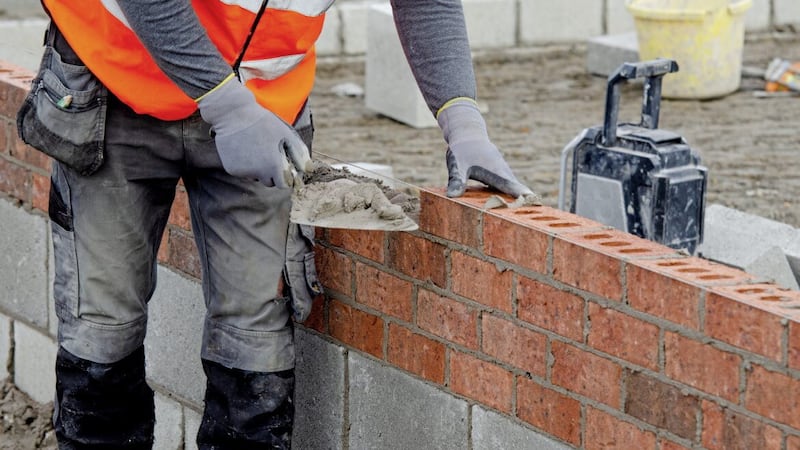SOARING inflation and an absent executive at Stormont has left the north’s construction sector in a “worst-case scenario”, a leading industry figure has warned.
Construction Employers Federation (CEF) boss Mark Spence said the trade body’s latest survey of local firms has painted a “stark picture” of a sector he warned “is finding the never-ending inflationary pressures increasingly impossible to bear”.
It showed two-in-three (68 per cent) building firms in the north admitting rising costs could have a serious or critical impact on their ability to deliver on contracts or projects.
And the vast majority of companies (94 per cent), believe the situation will get worse, with material costs expected to continue rising over the next three months.
Spanning the first six months of 2022, the survey is based on the views of Northern Ireland-based firms with a collective annual turnover in excess of £1 billion.
Two-thirds (36 per cent) said their main priority in the year ahead was to stabilise output and consolidate their business.
Only 11 per cent said their main priority was growth and expanding turnover while 17 per cent stated their main aim was survival and staying in business by any means.
CEF managing director Mark Spence said: “With absolutely no sign of these pressures easing over the rest of 2022 and into 2023 we are seeing a significant draining of confidence within our membership as to their medium-term prospects – with an alarming number now talking openly about business survival as being their main focus.”
Reflecting that loss of confidence, 62 per cent of builders anticipate fewer opportunities for public sector work in the north over the year ahead, with 70 per cent foreseeing a reduction in opportunities for commercial work here.
“For those who engage in public sector works, the picture is further complicated by the lack of a functioning Northern Ireland Executive and the consequent impact on government departments being able to deliver their procurement pipelines in a timely manner,” said Mr Spence.
“With many government clients telling us in recent weeks that they are operating on contingency budgets for the current financial year, we are now very much in the worst-case scenario for many when it comes to market conditions.
“A Northern Ireland Executive is not, of course, a panacea to many of the challenges that contractors are confronted with – but it can set a budget which unlocks a sustainable pipeline of work, and it can also, as our survey detailed, spearhead discussions around alternative forms of government contracts which would be of benefit to all in the current crisis.”
Compounding the situation across the north is the continuing wastewater crisis, with many schemes facing delay or planning hold-ups due to a lack of capacity in the infrastructure.
Mr Spence said the housebuilding sector is at its most uncertain point since the 2007/08 financial crisis.
“Solutions to this are undoubtedly possible – but they require a fundamental shift in policy, performance and mind-sets in order to unlock the new build housing which is an economic, societal and environmental imperative.”







